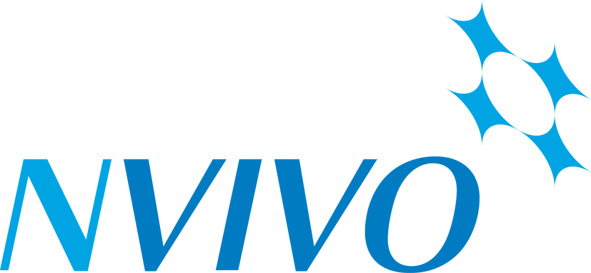This workshop is aimed at providing researchers with essential skills in using NVivo software. Those choosing to enrol in this course will be working on or about to embark on a research project. The course assumes no prior skills with using NVivo, however will cater for all levels of participants, from novice to advanced users.
This course is being held online via Zoom and run on Australian Eastern Standard Time (UTC +10)
(Canberra, Sydney, Melbourne time)
Please check your time zone.
This course is now FULL
We have scheduled anothe NVivo Essentials course for May 22-24.
You can can find all the details and enrol by following this link.

NVivo is computer software package produced by Lumivero that supports qualitative and mixed methods research. It has been designed for researchers working with very rich text-based and/or multimedia information, (including interviews, open-ended survey responses, picture/audio/video data, articles, social media and web content), where analysis on small or large volumes of data are required.
Course Structure:
This course will run across 3 x 1/2 days:
- 9.30am - 11.45am: Zoom session
- 11.45am- 12.15am: Break
- 12.15pm- 1.30pm: Zoom session
This course is being held online via Zoom and run on Australian Eastern Standard Time (GMT +10)
Dr Anuja Cabraal is an experienced qualitative researcher, and a global certified platinum trainer of NVivo. Dr Cabraal has close to 20 years of research experience, has been a trainer for over a decade, and has taught qualitative research methods at both an undergraduate and postgraduate level. They have worked and consulted on projects in a wide variety of sectors including, Royal Commissions, Not-For-Profit, Business, Government, Higher Education as well as across a variety of disciplines including, (but not limited to), business, sociology, development, architecture, law and learning and teaching.
The workshop is aimed to provide researchers with essential skills in using NVivo software. Those choosing to enrol in this course will be at the data collection or analytical stages of their research project*.
The course assumes no prior skills with using NVivo, however will cater for all levels of participants, from novice to advanced users. The focus is on developing the essentials skills from NVivo through hands-on experience. Sample data will be provided, however participants will have time at the end of each day to work with their own data.
This training will be conducted using the Windows platform software only. NVivo for Mac are welcome, but must be aware that all demonstrations will be provided in Windows. This training will be conducted in the new version of NVivo which was released in March 2020. This version is sometimes known as NVivo 20, NVivo 1 or simply NVivo.
*For those in the early stages of your research, please refer to the NVivo for a Literature Review course
Day 1
- Introduction to the software
- Getting a tour of the interface, a showcase of the main features of NVivo, with a detailed look at a complete project within the software.
- Setting up a project and working with documents in NVivo
- Opening the software and setting up a new project. Saving a project, creating a new project, and importing documents.
- Data analysis, Coding structures
- Coding techniques and analytic processes. Managing nodes, merging, moving and restruc-turing coding. Techniques on setting up your coding structure, working with your codes, identifying what coding techniques will best suit your research.
Day 2
- Managing and structuring your data
- Creating cases and case classifications, working with annotations and memos.
- Importing different sources of data including surveys and multi-media
- Importing, managing, and coding data such as PDF’s, images, audio, video, web content and survey data.
- Working with multi-media and surveys in NVivo
- Exploring ways to work with multimedia, adding notes and comments, creating cases and classifications with survey data. Using Word Frequency Queries.
Day 3
- Queries
- Identifying ways to further explore your codes, find patterns and further explore your data, including relationships between codes and themes. Using queries such as Word Frequency, Text Search, Coding and Matrix Coding.
- Visualisations and exploring your data
- Looking at different ways to visualise your data through various tools in NVivo such as charts, models, and graphs.
This training will be conducted using the Windows platform software only. NVivo for Mac are welcome, though please be aware that all demonstrations will be provided in Windows. Participants will be expected to have the latest version of the software installed on their own device.
This training will be conducted in the new version of NVivo which was released in March 2020. This version is sometimes known as NVivo 20, NVivo 1 or simply NVivo. If you don't have a copy, we will be in contact with a link to download a 14-day free trial version, which you can download & install just before the start of the course.
If you are using a laptop belonging to your workplace, it will be essential that you install all your updates before attending the course, as you may not have the authorisation to install software outside of your work environment.
Basics research methods knowledge. Familiarity with Windows based computer environments.
Bazeley, P. & K. Jackson. (2013). Qualitative Data Analysis with NVivo (Second Edition). London: Sage.
Miles, M. B., A. M. Huberman & J. Saldana. (2013) Qualitative Data Analysis: A Methods Sourcebook (Third Edition). Thousand Oaks: Sage.
Richards, L. (2014). Handling Qualitative Data: A Practical Guide (Third Edition). London: Sage.
Saldana, J. (2016) The Coding Manual for Qualitative Researchers (Third Edition). London: Sage.
I appreciated the way Anuja shared excellent technical knowledge of Nvivo, and situated it in the context of both theoretical approaches to research and real world projects. As well as the 'how to' Nvivo, there was 'why' you would want to use it and why you might not, depending on your research questions.
Anuja did a fantastic job and this is one of the best courses I have ever attended. Every piece of information learnt was highly informative and relevant.
Very relevant to apply the skills for my upcoming qualitative research project.
I learned a lot about features I didn't know NVivo had.
Helped me to understand features of NVIVO. Also how I can use it for my research project.
The main plus was I know many features which I can now look up in documents and videos to remeber how to do them.
Much of the content will be directly related to the work I do.
1. BOOKING - ACSPRI does not accept ‘expressions of interest’ for course places, i.e. all bookings, are considered firm, and a cancellation fee is charged if you cancel your booking after the early-bird date.
2. DISCOUNT RATE – The discounted rate for ACSPRI members is available to all staff and students of member organisations. To be eligible for this rate:
The course fee must be paid by either the member organisation or by you. Where fees are paid by a non-member organisation the non-member rate applies.
You must either have a valid email address issued by the member organisation; or you must hold, or have a right to hold, a current staff or student identity card from the member organisation.
In addition, to be eligible for a full time student discount the participant must:
Hold, or have a right to hold, a current student identity card from the member organisation;
Be enrolled as a full-time student;
Make payment in full with your application, arrange electronic funds transfer (EFT), or contact ACSPRI to advise credit card details for payment, by the early-bird closing date;
Provide ACSPRI with contact details of your supervisor, so we can request them to confirm your eligibility for the full time student rate.
The early bird rate applies to all bookings paid in full by the early bird close date, otherwise you will be charged at the standard rate.
3. REFUNDS & CANCELLATIONS - Course fees are not refundable unless:
we cancel the course in which you have enrolled; or
you cancel your enrolment before the early-bird closing date.
A cancellation fee of $250 will be charged if you cancel within the period from the early-bird closing date of and one week prior to the commencement of the program. The full course fee will be charged if you cancel within 1 week of the beginning of your course.
4. PRE-REQUISITES - Course descriptions specify course pre-requisites. You must undertake to meet the pre-requisites of the course(s) in which you enrol. If in any doubt, you should contact ACSPRI prior to enrolling.
Delivery of this course is online - via Zoom.
Please ensure you have the following:
- Reliable Internet connection with at least 5Gb per day of data available (i.e. a 5 day course will use about 25Gb of data just on the Zoom application)
- A computer/laptop with the Zoom application installed (free)
- A webcam (built in to most laptops)
- A headset with a microphone (not required but ideal)
- A second monitor/screen if possible
Please also check the course page for specific software requirements (if any).
